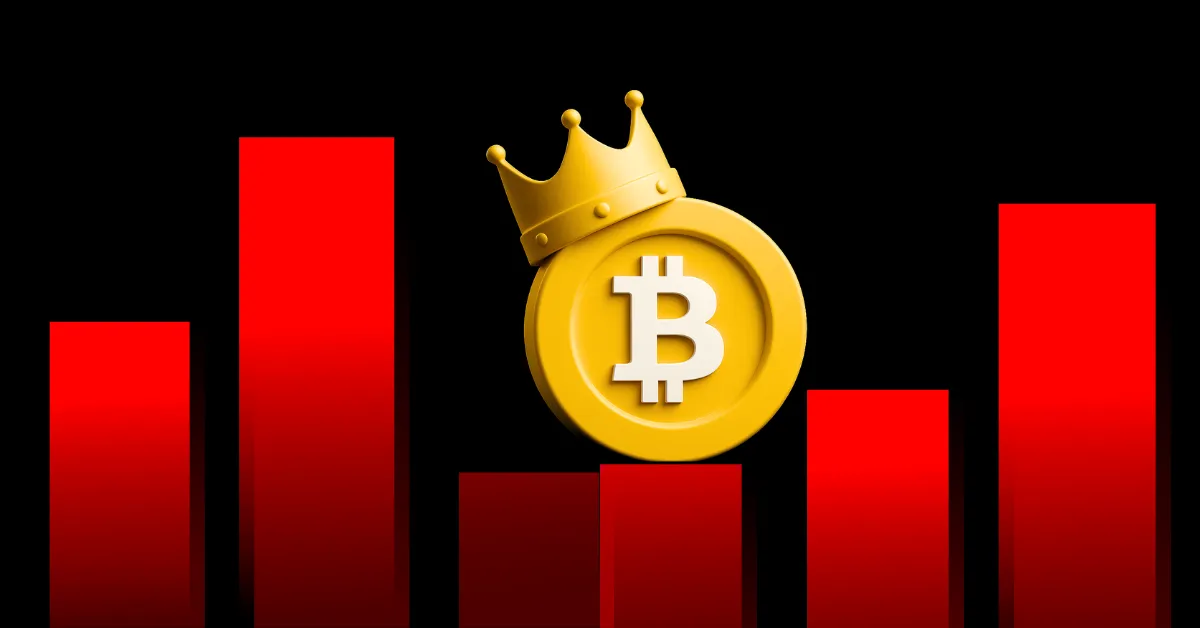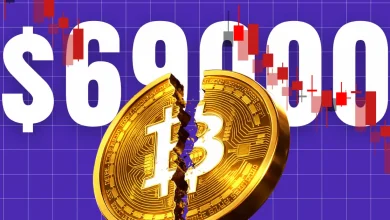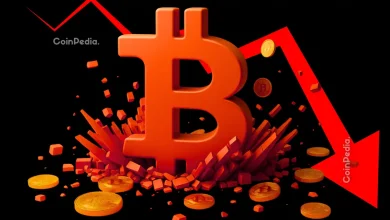
Bitcoin price crashes to $109K as September curse wipes $1.7 billion long positions.
Institutions withdraw from ETFs, yet analysts say fear could trigger major Bitcoin breakout.
History shows Bitcoin averages 85% Q4 gains, despite consistent September losses haunting traders.
CRYPTOBIRB forecasts bullish Q4 ahead, supported by Fed cuts, demand surge, and scarcity.
Bitcoin has slipped back into bear mode, trading near $109,000, and once again, the “September curse” seems to be haunting the crypto market. Nearly $1.7 billion in long positions have been wiped out, shaking the confidence of retail traders.
But according to analyst CRYPTOBIRB, the bigger picture may not be about September at all, instead, Q4 could be where Bitcoin sets up for its next big breakout.
Why September Feels Like a Curse
Historically, September has never been kind to Bitcoin. CoinGlass data shows that, on average, this month has delivered 6% losses for the crypto market. Many expected 2025 to break the trend, but early gains have already been erased.
What started as one of the most promising Septembers in years has now turned flat, wiping away nearly all earlier gains.
On the other hand, it’s not just retail traders selling, institutions are pulling back too. Bitcoin spot ETFs saw four straight days of outflows, losing $1.13 billion this week, while Ethereum ETFs faced $795.8 million in outflows.
This suggests money may be shifting back into Bitcoin. For big players, fear in the market isn’t a reason to run — it’s a reason to buy.
Bear Setup, Breakout Coming
Despite the panic, CRYPTOBIRB says the outlook may not be as bad as it seems. On higher timeframes, Bitcoin is still safe. But on the charts, the picture is shaky. As BTC has slipped below its 200-day trend line at $112,400, leaving $104,000 as the next key support.

Even the momentum is fading, with RSI at 38 showing weakness. Bitcoin is stuck between $108K and $115K, hinting at a big breakout ahead.
The “Fear & Greed Index” has dropped to 33, signaling “fear,” and retail traders are panicking. Ironically, this same fear might be the fuel that sparks Bitcoin’s next major move.
Q4: Bitcoin’s Strongest Season
Despite September’s slump, CRYPTOBIRB expects Q4 to be bullish. Key drivers include potential Fed rate cuts, dollar weakness boosting risk assets, and a supply-demand imbalance, with projected institutional demand of $3 trillion against only $77 billion worth of new BTC issued annually.
History also favors the bulls. Since 2013, Bitcoin has averaged an 85% return in Q4, with November alone bringing an average 46% gain and October around 21%.
For now, Bitcoin trades at $109,590, slightly higher in the past 24 hours, but all eyes are on Q4.
Never Miss a Beat in the Crypto World!
Stay ahead with breaking news, expert analysis, and real-time updates on the latest trends in Bitcoin, altcoins, DeFi, NFTs, and more.
FAQs
Historically, September brings average losses of 6% for Bitcoin. This pattern of a market slump has repeated again in 2025, erasing early gains.
Market fear can signal a buying opportunity for long-term investors. The “Fear & Greed Index” is low, which has historically preceded major bullish breakouts.
Analysts are bullish for Q4, citing historical trends where Bitcoin averages an 85% gain. Key drivers include potential Fed rate cuts and high institutional demand.
Trust with CoinPedia:
CoinPedia has been delivering accurate and timely cryptocurrency and blockchain updates since 2017. All content is created by our expert panel of analysts and journalists, following strict Editorial Guidelines based on E-E-A-T (Experience, Expertise, Authoritativeness, Trustworthiness). Every article is fact-checked against reputable sources to ensure accuracy, transparency, and reliability. Our review policy guarantees unbiased evaluations when recommending exchanges, platforms, or tools. We strive to provide timely updates about everything crypto & blockchain, right from startups to industry majors.
Investment Disclaimer:
All opinions and insights shared represent the author's own views on current market conditions. Please do your own research before making investment decisions. Neither the writer nor the publication assumes responsibility for your financial choices.
Sponsored and Advertisements:
Sponsored content and affiliate links may appear on our site. Advertisements are marked clearly, and our editorial content remains entirely independent from our ad partners.



![XRP Community Day [Live] Updates](https://image.coinpedia.org/wp-content/uploads/2026/02/05161327/XRP-Price-Drops-10-as-Leverage-Dries-Up-and-Whale-Activity-Remains-Absent-390x220.webp)




